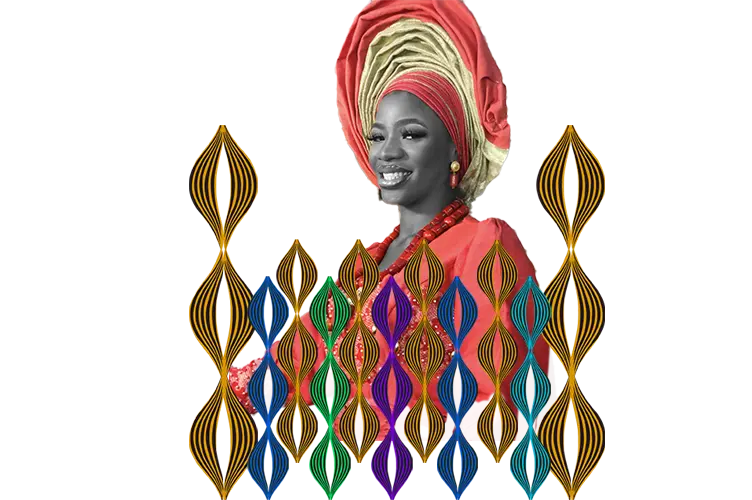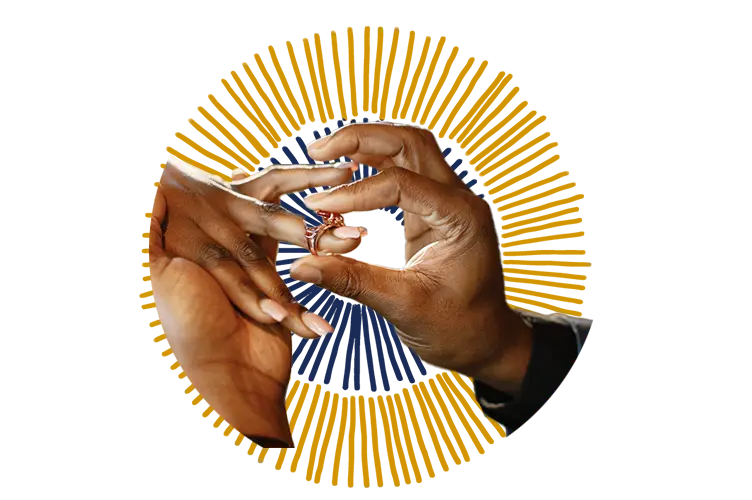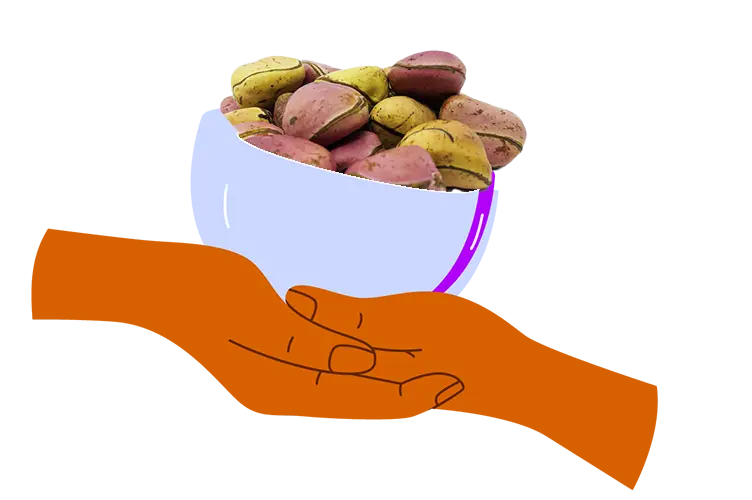
If you or your partner are Nigerian, hosting a Nigerian traditional wedding is a wonderful way to revisit cultural roots and honor your ancestors.
A Nigerian wedding is full of life, joy, and many interesting and exciting traditions. Whether you plan to host a fully Nigerian wedding, or you plan to incorporate ancient traditions into a modern Western wedding, either option guarantees your day will be unique and extra special. And who doesn’t want their wedding to be extra?
There’s much to learn about the Nigerian wedding, so let’s get started.
A Nigerian wedding looks quite different from a Western wedding. The attire is bright and colorful, and many rituals and customs take place, bringing together the couple’s families.
However, a Nigerian wedding places a lot of emphasis on honoring culture, traditions, and customs, and the couple’s families often oversee a large part of the traditions and cultural acts — which means the couple may have little control over their own wedding. This contrasts starkly with Western weddings, wherein the bride and/or groom are front and center, with their wants and needs put first.
Unfortunately, also, outside of Nigeria, a traditional wedding is not considered valid in the eyes of the law. Therefore, even if you plan a traditional Nigerian wedding, you’ll still need a Western-style ceremony for a legal marriage.
Experts estimate there are an incredible 382 different tribes located in Nigeria. Each tribe boasts its own set of unique Nigerian wedding traditions. That said, many Nigerian weddings honor the traditions of one of the three largest tribes: the Igbo, Hausa, or Yoruba.
Here are some distinct differences between the three and their weddings.
Igbo weddings stand apart from other Nigerian weddings with their wine-carrying ceremonies.
While the bride changes into a new outfit during the event, the groom will hide among the guests. When the bride is ready, her father offers her a cup of wine. Then, after a sip or two, she must take the cup in hand and seek out her groom. When she finds him, she offers him the remainder of the wine.
Igbo grooms also wear a red cap and clothes made from a special fabric called “Isi agu,” featuring a lion’s head.
Hausa is Nigeria’s largest tribe. Hausa wedding culture dictates the groom provide a house for him and his spouse to live in, but then for the bride’s family to furnish it.
Hausa grooms wear a woven hat called a “fulan.” Hausa brides host a special women’s-only event called a “wuni,” wherein the bride and other female wedding party members adorn their feet and hands with intricate henna patterns.

During Yoruba weddings, you might observe the groom and his groomsmen prostrating (or lying face down on the floor).
Beyond this tradition, Yoruba customs require the bride to select the most important gift the groom’s family will give to the bride’s family. The gift must be symbolic and faith-related, and might be a Bible or Quran.

Beyond traditions unique to various tribes, other, overarching traditions apply to the majority of Nigerian weddings.
For a traditional Nigerian proposal, typically, the groom, along with the groom’s family, will all go see the bride’s family, so the groom can make his introductions and express his intentions to marry.
Then, the two families come together to eat, drink, and decide a wedding date. The bride’s family presents kola nuts to the groom’s family.
During the meeting between the two families, the families agree upon a bride price.
The bride price is not for the groom to “purchase” his bride. Rather, it is a symbol of appreciation for the bride’s parents, and a demonstration of the groom’s financial capability.
The bride price always consists of food, property, livestock, home items, and/or money.
Nigerian weddings are communal events, and therefore there is usually an open invitation for the entire community to attend. This can often lead to huge numbers of guests for a single wedding. In larger communities, the numbers can run into the thousands.
For Nigerians living in the U.S. and other Western countries, it is not unusual to host a double ceremony consisting of a cultural Nigerian wedding ceremony and a Western wedding, on two separate days.
The traditional wedding honors Nigerian culture and lineage, the couple wears traditional wedding attire, and they observe Nigerian customs.
Since this type of marriage is not legally binding, the couple must then also hold a legal ceremony, which is the Western wedding.

Kola nuts come from the kola tree native to West Africa. They look a little like chestnuts, taste bitter, and symbolize love, respect, friendship, and hospitality.
During Nigerian weddings, the couple’s families share kola nuts, and, during the ceremony, the bride and groom will also share kola nuts.
Yoruba ceremonies include prostration. The groom and groom crew lie face down on the floor to show reverence and respect to elder family members. During prostrating, prayers ask for the marriage’s success.
Traditional attire plays a large role in any Nigerian wedding. Aso-ebi means “family clothes” and refers to the wedding party’s bright, coordinated outfits.
Beyond this, the bride will usually wear a colorful wedding dress similar to a kaftan, and the gele, an elaborate head wrap. The traditional gele is intricately wrapped by hand. The wraps are complicated, but an auto-gele is also available. The auto-gele is a pre-wrapped and fixed version that is simply placed upon the head.
The money spray is a popular, fun tradition that replaces traditional wedding gifts. When the bride and groom take to the dance floor, families and guests will “spray” the couple with money.
Typically, guests throw small bills, such as $10 or $20 bills, although larger bills are also acceptable. A member of the wedding party must collect all the money as it falls to the floor, then present it to the bride and groom at the end of the event.
The couple’s parents traditionally pay for the wedding. However, sometimes the couple will contribute a significant amount, too.
While there are around 382 tribes in Nigeria, there are three types of weddings based on the country’s three largest tribes: Igbo, Hausa, and Yoruba.
A traditional Nigerian wedding lasts two days and typically takes place over a Friday and Saturday. The first day is the cultural wedding celebration, and the second day is the legal ceremony.
Nigerians pay a bride price to the bride’s family to show honor and respect. This gesture is also a demonstration that the groom is financially capable. The bride price consists of food, household objects, property, money, or livestock.
Guests do not typically bring gifts to a Nigerian wedding. Instead, guests participate in the “money spray,” showering the newlyweds with money.
A Nigerian wedding is a colorful, fun, and deeply symbolic affair, and it’s not difficult to incorporate elements of a traditional Nigerian wedding into a more modern event. Whether you choose to hold a money spray, wear traditional attire, or pay the bride price, doing so can honor your ancestry in your own unique way.
To learn more about different wedding cultures and customs, check out our other articles on TheGroomClub. From ideas for non-religious ceremonies to gender-inclusive events, we cover it all and more.